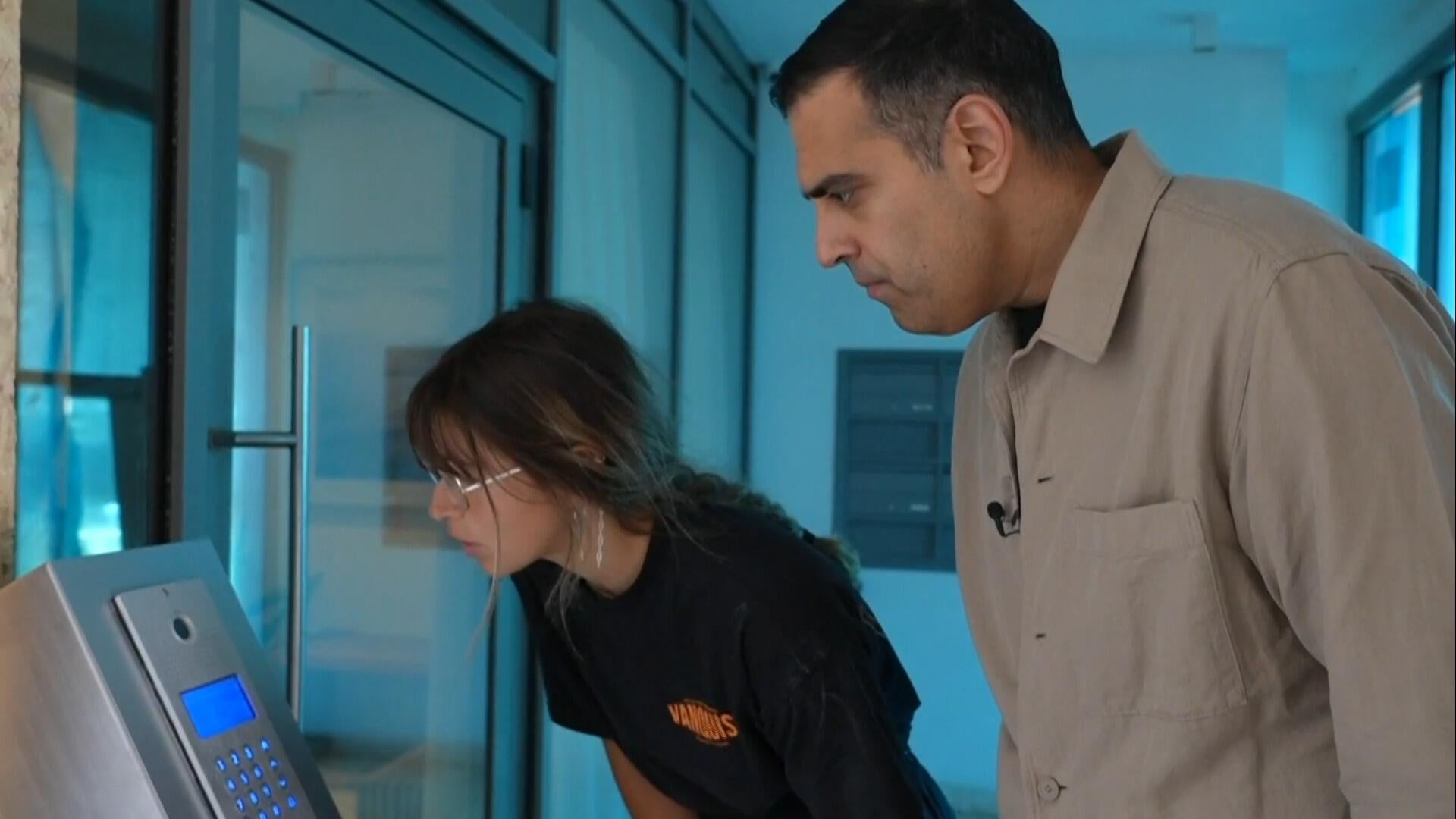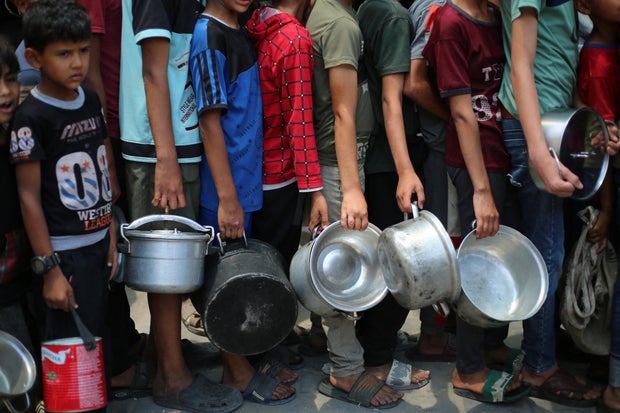Questions abound about Gaza aid distribution

The controversial U.S.-backed humanitarian aid operation in Gaza, which has been mired by reports of dozens of Palestinians being killed trying to reach its distribution hubs in the war-torn enclave since it started work just over a week ago, said it was pausing its operations for Wednesday. The Gaza Humanitarian Foundation said in a statement posted on social media that the pause was "for update, organization, and efficiency improvement work," but the Reuters news agency said the U.S. entity was trying to address security concerns.
GHF said in its brief statement that operations would resume on Thursday.
The United Nations and other aid agencies have refused to work with the group, calling it a distraction and accusing it of weaponizing access to desperately needed food. More than 50 people have been killed by Israeli forces near the sites, according to Gaza's Hamas-run Ministry of Health, which has called the GHF effort a trap for hungry Palestinians.
The Israeli military has denied the accusations and accused Hamas of shooting at people seeking aid.
GHF did not immediately respond to a CBS News request for more information on the one-day shutdown of its four distribution hubs in southern Gaza.
 Palestinian children carry pots as they wait for a hot meal at a food distribution point in Nuseirat, in the central Gaza Strip, run by international charity groups, June 4, 2025.
EYAD BABA/AFP/Getty
Palestinian children carry pots as they wait for a hot meal at a food distribution point in Nuseirat, in the central Gaza Strip, run by international charity groups, June 4, 2025.
EYAD BABA/AFP/Getty
The funding, operational details and origins of the GHF have remained murky since its inception, and it has been plagued not only by grave questions about security for civilians accessing its hubs, but by potentially existential issues regarding its internal operations.
The move comes just days after GHF said it would shutter its Switzerland-based office after officials there told CBS News the foundation was violating Swiss rules for non-governmental organizations. It also comes just a day after The Washington Post reported that U.S.-based consulting firm Boston Global had severed its ties with the group and launched an internal review over its involvement with GHF.
GHF said it began work in Gaza on May 27, but it remains unclear where it is based and who is funding its operations. Its official website consists only of a homepage bearing its name and the message: "More information coming soon."
The Reuters news agency quoted an unnamed GHF spokesperson on Wednesday as saying the group had asked the Israel Defense Forces to "guide foot traffic in a way that minimizes confusion or escalation risks" around its ongoing military operations in Gaza, and to develop more clear guidance for civilians seeking to reach its distribution hubs, and to "enhance training to support civilian safety."
"Our top priority remains ensuring the safety and dignity of civilians receiving aid," Reuters quoted a GHF spokesperson as saying.
Health officials in the Hamas-ruled Gaza Strip said 27 Palestinians were killed trying to reach a GHF hub in southern Gaza on Tuesday alone. The Israeli military denied the claim of mass shooting at civilians, saying troops about a third of a mile away from the site had fired at several people who were deemed to present a threat after they strayed beyond the defined boundaries of the access route. The IDF said it was looking into the reports of civilian casualties.
In a message posted Wednesday on social media in Arabic, IDF spokesperson Lt. Col. Avichay Adraee warned Gazans against using the roads leading to GHF distribution centers, saying they would be considered "combat zones" for the day and stressing that access to them was "prohibited and dangerous."
The IDF has repeatedly accused Hamas of sabotaging the GHF effort, accusing it of sending gunmen specifically to shoot at civilians at the aid hubs.
"We are not preventing Gaza residents from accessing aid distribution sites," IDF spokesperson Brig. Gen. Effie Defrin said in a video statement posted online Tuesday, before the one-day pause was reported. "Food packages are being distributed daily by a U.S.-based civilian company. This initiative is proving effective. Gazan residents are coming to the distribution centers to receive the aid. The civilian population of Gaza understands that Hamas is not taking care of them — on the contrary, Hamas is actively trying to prevent them from receiving the aid."
Defrin said IDF forces "operate nearby and do whatever is necessary to ensure that the aid does not fall into the hands of Hamas."
He also accused the United Nations' aid agencies of failing to collect and distribute more than 450 trucks carrying humanitarian aid that Israel says were allowed into Gaza in recent days but left waiting on the other side of the Kerem Shalom border crossing with Israel. The U.N. has rejected similar previous Israeli claims, noting that Israeli forces maintain control over virtually all of Gaza and that there are huge logistics challenges to operating in a densely populated active warzone.
And the IDF's assault, which Israel has vowed to continue until Hamas is destroyed and the remaining 58 Israeli hostages are brought back home from Gaza, has continued to ramp up despite the U.S.-backed aid effort.
CBS News' team in Gaza was there as Palestinians rushed to rescue survivors of an Israeli strike that destroyed a bank in Gaza City where families had taken shelter. At least seven people were killed and dozens injured, according to first responders who spoke with CBS News at the scene. They were among 97 Palestinians killed over the preceding 24 hours alone, according to the Hamas-run Gaza Ministry of Health, which put the overall death toll from the war at 54,607 as of Wednesday.
The war was sparked by the Oct. 7, 2023, attack on southern Israel orchestrated by Hamas, which has long been designated a terrorist group by the U.S., Israel and the European Union.
That attack killed some 1,200 people in Israel and saw 251 others taken hostage into Gaza. Israeli authorities believe about 20 of the remaining hostages are still alive.
Tucker Reals is CBSNews.com's foreign editor, based in the CBS News London bureau. He has worked for CBS News since 2006, prior to which he worked for The Associated Press in Washington, D.C., and London.










 English (US) ·
English (US) ·